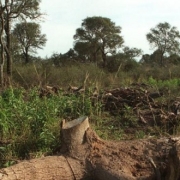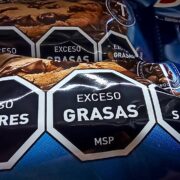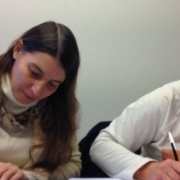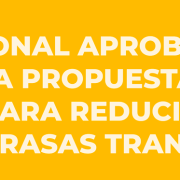Is Argentina closer to saying #ByeTransFats?
On March 14 and 15, the National Food Commission (CONAL) held its ordinary meeting No. 144. There, among other topics, it worked on improving the regulation of trans fats based on the proposals presented by civil society and the Ministry of Health.
Below, we offer a google translate version of the original article in Spanish. This translation may not be accurate but serves as a general presentation of the article. For more accurate information, please switch to the Spanish version of the website. In addition, feel free to directly contact in English the person mentioned at the bottom of this article with regards to this topic.
CONAL, at its first meeting in 2022, put the update of art. 155 tris of the Argentine Food Code (CAA), referring to the maximum percentage of trans fats allowed in food products. For this, it used two proposals: one that civil society organizations presented in September 2021 and another, by the National Ministry of Health, whose presentation took place this year.
Both proposals state:
- Establish a maximum limit of 2% of industrially produced trans fats on total fats in all food products. Including those used as ingredients and/or raw materials.
- Ban the use of partially hydrogenated oil (main source of trans fatty acids).
It is important to highlight that these proposals are aligned with the best standards of public health protection, as well as with the recommendations of international expert organizations.
What’s coming
According to the minutes issued after the last meeting of CONAL, the National Food Institute (INAL) has the duty to prepare the so-called “joint resolution project” (PRC). This project is a document, where, taking into account both the proposal of civil society and that of the Ministry, the effective proposal to modify art. 155 tris.
After its preparation, the PRC must be sent for a period of 20 calendar days to all CONAL representatives and if no substantial comments are received, it must be submitted simultaneously to CONASE -Advisory Council- and to Public Consultation -open stage to the community-, for a period not exceeding 30 calendar days.
However, neither the statements made by members of CONASE or those that may arise in the framework of the public consultation, are binding. In other words, CONAL is not obliged to follow the positions that result from both instances, but they will be an important input to be assessed by the Commission when modifying the Food Code.
Subsequently, a new meeting of the CONAL will take place and if the modification proposal is approved, it will go to the administrative process so that the joint resolution between the Secretary of the Ministry of Agriculture, Livestock and Fisheries and the Secretary of the Ministry of Health is issued, acquiring thus its character and rigor of the norm after being published in the Official Gazette.
Why is it important for civil society to participate?
Participation will be key to driving the proposal forward, as well as countering possible interference from the food industry. In general terms, the discussions raised within the scope of CONAL, given its institutional and operational scheme, are behind closed doors and quite far from citizen participation. Therefore, it is transcendental that civil society organizations begin to take part in this space, bringing the perspective of public health, human rights and, above all, prevention of non-communicable diseases.
Argentina is behind in terms of trans fat policies, so it is necessary to redirect efforts again to ensure the right to health of citizens.
We are getting closer to saying #ByeTransFats!
More information:
We present a proposal to eliminate trans fats in Argentina
Contact:
Maga Merlo Vijarra, magamerlov@fundeps.org










